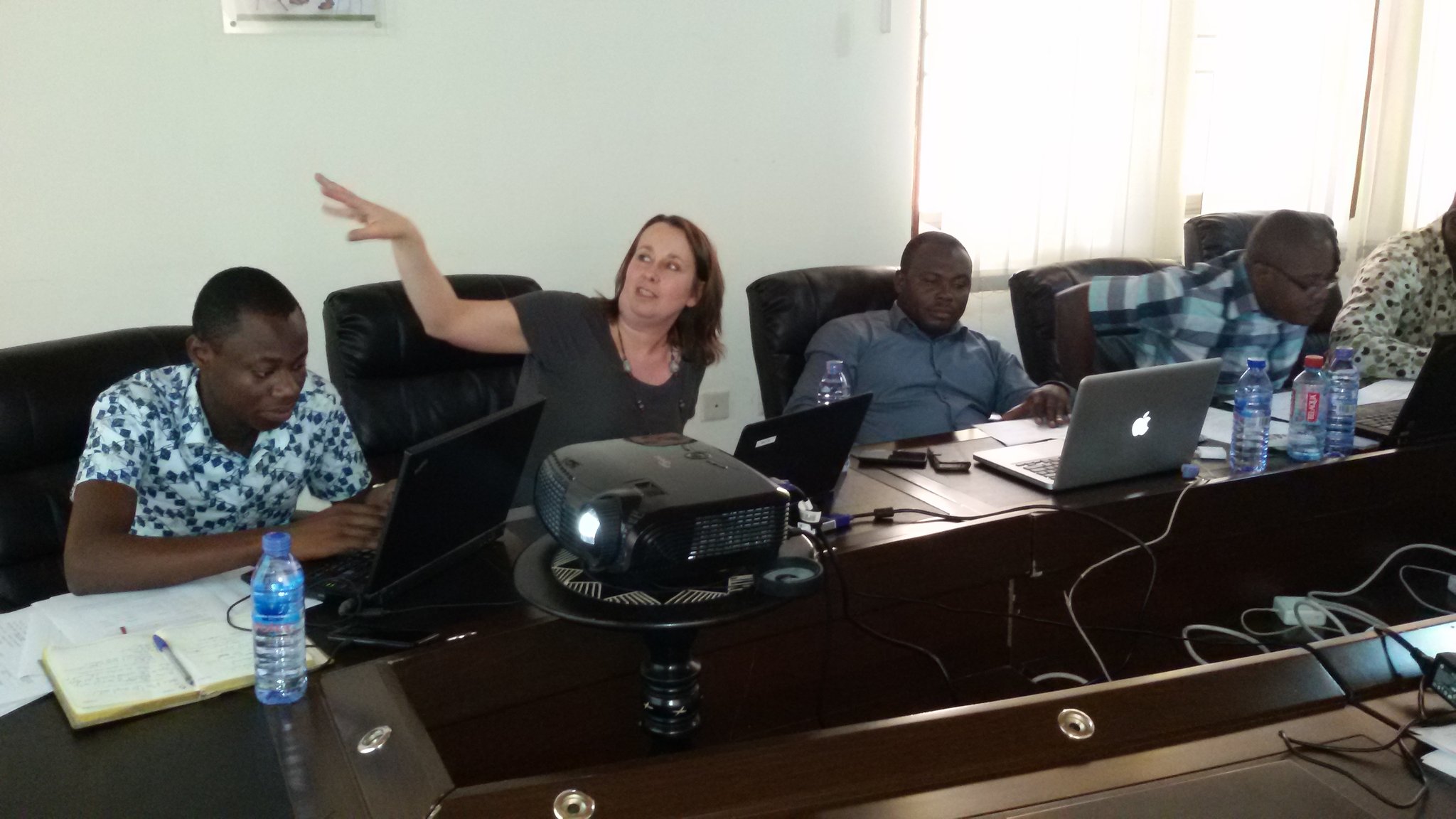By Rowan Popplewell.
I’ve just returned from Ghana, where INTRAC and the West Africa Civil Society Institute (WACSI) hosted a workshop on supporting civil society sustainability in West Africa. We set out from Oxford to test the relevance of our ideas, and we found that they clearly resonated.
What stood out was the need for civil society to make a case for why it should be sustainable, not just how. At the workshop, we heard from civil society organisations (CSOs) based in Côte D’Ivoire, Ghana, Nigeria and Senegal, as well as organisations that work throughout West Africa, about how changing pretty negative perceptions towards civil society is one of the biggest obstacles to their sustainability.
We did meet several people who argued that formal and professional CSOs are too dependent on foreign donors and have become distant from the communities they represent. They lack coordination and social purpose, and in some cases, have become self-serving and unaccountable.
However, the vast majority of organisations that participated in the workshop challenge these perceptions. They are rooted in local communities, looking for and finding innovative ways to address critical social issues. They have good relationships with their funders and strong accountability structures.
So how can CSOs prove these negative perceptions are indeed wrong most of the time? How can they make the case for why they should be sustainable?
Make more noise about the contribution of civil society
 Several donors that we spoke to in Ghana said that, in their views, CSOs are not making enough noise about why funding to civil society matters. They want to hear more about how civil society contributes to development outcomes in West Africa at the national and regional level. CSOs must take advantage of this open door, and convince donors about their collective contribution to development goals.
Several donors that we spoke to in Ghana said that, in their views, CSOs are not making enough noise about why funding to civil society matters. They want to hear more about how civil society contributes to development outcomes in West Africa at the national and regional level. CSOs must take advantage of this open door, and convince donors about their collective contribution to development goals.
Especially at a time when donor fatigue, along with the transition of many countries in West Africa to lower middle income status, is leading to aid withdrawal[1].
But civil society shouldn’t just be having these conversations with donors. They need to reach out to other actors such as government and the private sector; actors especially critical of civil society.
Such dialogues must be based on solid evidence about past impact. Although this evidence exists within individual organisations, CSOs must be able to tell a coherent story about the overall contribution they make across West Africa.
Become independent and sustainable through diversifying resources
Many CSOs in West Africa recognise that they probably have become too dependent on donor funding and that this is damaging their long term sustainability. Diversifying their resource base will help improve their financial independence and stability.
We heard two good and innovative examples at the workshop. The Kenya Community Development Foundation (KCDF) is improving its sustainability through cultivating steady sources of local income. Resources raised through income generating projects are invested into an endowment fund, which will provide KCDF with long-term financial stability. Afrikids is using microfinance and social enterprises to raise more of its funds locally and reduce its reliance on external funding. They have established a medical centre and a travel and tour agency, sell energy efficient stoves and are involved in the production and exportation of shea butter.
In both these cases local fundraising has not only improved the organisation’s financial stability, it has also brought them closer to the communities they work with and strengthened their ties with local stakeholders.
It is important that we gather more stories like these. Greater sharing of examples of good and bad practice, as well as stories of success and failure, can provide practical support to CSOs seeking to become more sustainable through diversifying their resources.
Improve weak frameworks to support accountability and legitimacy
At INTRAC, we have argued for a long time that accountability, legitimacy and credibility are critical for sustainability. At the workshop, several participants stressed that weak regulatory frameworks mean there is little pressure for civil society to be accountable. In their view, a small number of organisations are taking advantage of loopholes and incentives, and tarnishing the reputation of the sector.
CSOs recognise that regulatory reform is essential to improving the reputation of civil society. But they are reluctant to push for strong regulation, which they fear could be misused and lead to increased state control over civil society. Self-regulation may be a potential solution, but does this go far enough?
In Ghana, participants expressed a specific need for more evidence on how the regulatory framework is affecting the ability of organisations to engage in social enterprise and income generating activities. Greater clarity around tax credits, rebates and incentives for non-profits is also required.
So what now? Moving forward
Over the next weeks and months INTRAC and WACSI will work together to take forward these conclusions. We will be:
- building up the evidence base on how organisations are adapting to change
- exploring some of the questions around regulatory frameworks
- raising awareness of sustainability issues through dialogues at the sub-national, national and regional level
Through this we can not only develop strong ways to help CSOs become sustainable and challenge those negative perceptions about civil society, but also build the case for why sustainability matters.